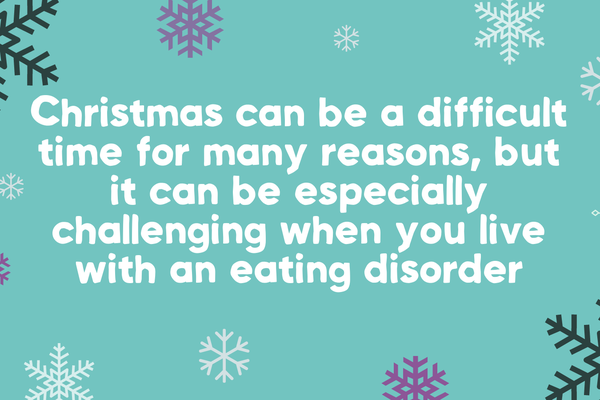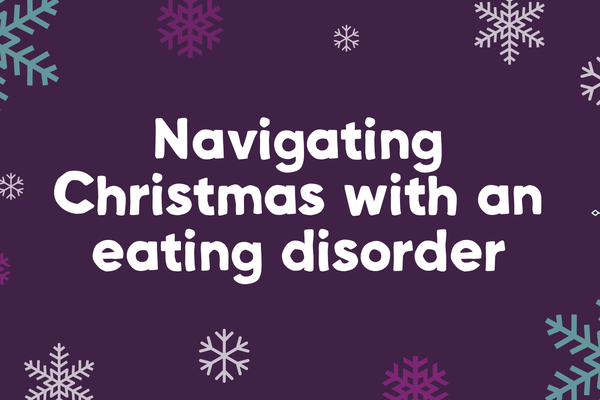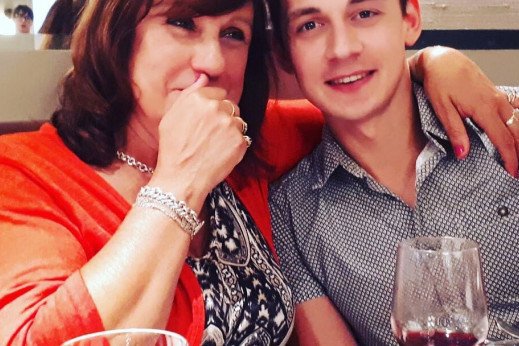Today's a weird one for me. It's five years to the day that my GP told me I had anorexia nervosa. It sounds strange, but I was relieved at the diagnosis. It had taken a lot of courage to go to the doctor: the disordered part of my brain was telling me I was just making a fuss, a thought reinforced by the dismissal of my problems by a less well-informed doctor six months previously. I now know that you don't need external validation to deserve recovery from an eating disorder, but at the time it felt good to be heard; some of the shame and secrecy of my behaviours over the previous four years had been lifted.
Unfortunately, at that point, I chose not to tell anyone else what the GP had said. I truly wish I had. Even to my lovely friends, who out of concern had encouraged me to seek help, I was unable to say the words "anorexia nervosa". I thought they'd laugh me out of the park. I didn't fit the image of what I (ignorantly) thought an eating disorder looked like, and I didn't think my behaviours around food and exercise were "bad enough" for me to need help. A few days later I went to my parents' house for Christmas, and I said nothing.
I love Christmas, but in all honesty that year it was miserable. I was deeply preoccupied by disordered thoughts, and wasn't present with my family. Trying to hide my illness from my parents, who had over a number of years expressed some concerns, was exhausting. It still makes me incredibly sad to say that when Christmas was over, I was pleased to go home.
Happily, I cannot tell you how different I know this Christmas will be. My husband and I made mince pies the other day, and they're almost half gone. This morning I popped open my chocolate advent calendar, and genuinely enjoyed eating it. And I'll have my Christmas dinner with all the trimmings, thank you very much. But most importantly, I know I'll be able to have fun with my family, because my brain isn't totally taken up with worrying about food. I can't pretend that I don't still have the occasional disordered thought – I do – but real life has taken over now. And it's great.
So what changed in those five years? Well, lots of things. But these are the three I want to share.
- I told people what was going on. Going to the GP was a start, but I really wish I'd been honest with family and friends earlier. When I eventually did, I found them sympathetic and supportive, and willing to try to understand. (unsurprisingly, no one laughed me out of the park.) The more people who were close to me I told, the better the support network I had, and the greater my accountability for recovery. Telling people was an act of commitment and a recognition that I needed and deserved to get better. An eating disorder is a serious illness, and not something to be ashamed of.
- I got external help. This wasn't easy. Because eating disorders services are under-resourced, and my physical situation wasn't "critical", I wasn't able to access local NHS services. For a while this made me feel stuck, and unable to recover. I was lucky enough to have non-specialist counselling through my place of work, and regular appointments with my GP, both of which stopped the disorder spiralling out of control. But even if you don't have these things available to you, there is other help out there. Some things that really aided me were email buddy support from the charity SEED Eating Disorders, and access to a moderated online recovery support group. They sound like small things, but having people I could talk to who really understood what I was going through was invaluable. Help is available, including through Beat; not being able to access NHS services doesn't mean you can't, won't, or shouldn't recover.
- I realised that however horrible and scary recovery felt, the only other option was a life viewed through the fog of disordered thinking, one in which relationships, fun, laughter, and joy, would pass me by as I was trapped in my own small world. And as I challenged my disorder more, that fog started to clear a little. I'll never forget the evening when I started giggling uncontrollably at something someone had said, and my friend hugged me said "I haven't seen you do that in years." I realised that life with an eating disorder was like viewing the world in black and white; this moment was a glimpse of technicolour, and as I continued in recovery other patches of brightness started to appear. If you're at the beginning of this journey, and everything seems dark, I promise you it will get better. Just keep going.
I'm writing this for anyone who's on or beginning that journey now, but I'm writing especially for anyone who isn't able to access the services they need, or who feels alone in this. You are not alone, and however much the disordered part of your brain tells you that you are not "ill enough", you deserve to get better. Health services may be stretched, but other people and organisations such as Beat can help. Most of all, I want you to know that however impossible it feels at the moment, you have it in you to get better.
Whatever this Christmas season is like for you, I want to give you hope for the Christmas future. I can't tell you that recovery is linear, or that five years on I don't still have wobbles and moments of doubt. But I can say that all of my efforts, all of the hard work and fear that has gone into my recovery has been worth it. For me this Christmas, the stars are shining brightly; the ability to see life in all its shades of dark and light is better and more valuable than I could ever have imagined.
Contributed by Carys
Christmas can be a difficult time for many reasons, but it can be especially challenging when you live with an eating disorder
16 December 2021Recovery takes time and it isn’t a race – as long as I’m on the right track it doesn’t matter how long it takes me to reach the finish line. I'’ll get there eventually, and next Christmas perhaps anorexia won’t be invited at all.
Navigating Christmas with an eating disorder
9 December 2021Isabella discusses navigating Christmas with an eating disorder and Beat's support services over Christmas.
Don’t let Christmas make you struggle in silence
24 December 2020In the run-up to Christmas, there is a lot to juggle. The gifts we need to buy, the plans we have to make to see loved ones, how we might manage disruptions to our routine - all of these things can be difficult to handle at once.


